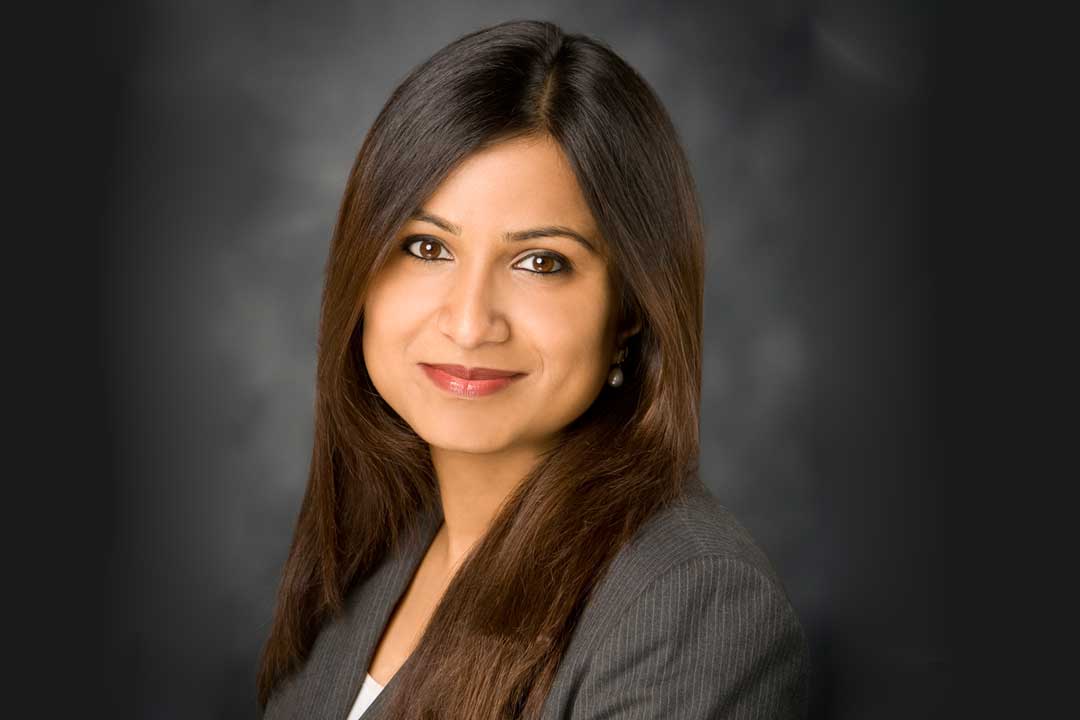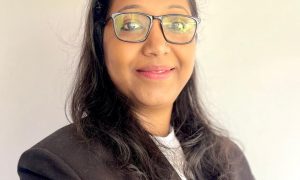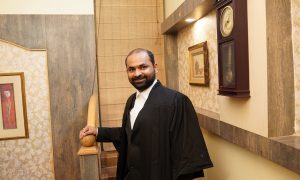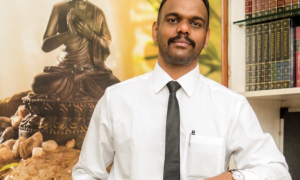Ashitha Bhagwan graduated from University Law College, Bangalore in 2007 and subsequently completed an LL.M. from New York University. After working in India and Singapore, she is currently practicing in California. Being a dual licensed corporate attorney focusing on start-ups and mid-market companies, she regularly counsels on a wide range of corporate issues such as formation, equity structure, employment, general corporate governance, intellectual property protection and commercial transactions for domestic and international clients.
We took this opportunity to ask her about:
- Her experience at New York University
- Work atmosphere in the U.S.
- Working as an attorney at Royse Law Firm
“Law school”, have become synonymous with the NLUs. Have you faced any such bias during your career? What would you say to the future graduates of ULCB regarding this?
You will realize as you grow into the profession that what matters is what you made out of the school that you graduated from. And as you are well aware, opportunities that present themselves to the legal student community are open to all students, irrespective of the school. The school that you graduate from cannot really hold you back – you are at liberty to be as involved in this profession as you would like to be.
I didn’t let the comfort of life at law college get to me while I was completing my course. I used every opportunity I got to explore and build an identity beyond the shadow of my college. The legal community is a closely knit profession so it’s important that you network among your peers, focus on your courses and make the most of the internships/moot courts that you are given an opportunity to participate in.
After graduating from ULC you had taken up a Post Graduate Diploma in Intellectual Property Rights from NLSIU. What attracted you to this course? How has it impacted your overall career trajectory?
[sociallocker] I wanted to get some background and insight into Intellectual Property (IP) laws since I was interested in corporate laws, and IP and corporate laws intersect at various junctures. I completed this course alongside my ULC degree, so it was twice as much pressure but I managed to learn quite a lot from the course. It helped me master the basics of IP laws which have proven imperative in my day-to-day practice.
Of all the internships that you have done, which ones do you think really enhanced your chances of getting admission in such a prestigious University? How would you recommend students to go about choosing their internships?
The thing about internships is that it is not so much a single stint that will lead to your LL.M admission, as it is a holistic view of your entire career as a law student. I enjoyed all my internships since each one gave me an opportunity to explore a new facet of law. In the end, it became clear to me what I wanted to pursue in future.
Since most students in India are enrolled in the five year course, they have at least 8 breaks (short and long) in which they could potentially intern. It is important that you show for these times when you are not required to be in class, and they all add up to your end goal. You could certainly spend a break or two doing something you like, unconnected to your end goal, but for a post graduate degree, it is important that your resume tell a story that leads up to the LL.M.
How did you decide upon New York University School of Law for your Post-Graduation, from the plethora of options available in the United States?
It was a really simple choice – I had applied to 6 schools (in US and UK) and got admitted in 5, and NYU was simply the best of them all. It was located in NY (which is the financial hub), the faculty was awe-inspiring (we had professors coming in from all over the world, even legal luminaries that I had only read about as a student), and it was in the top 3 when I enrolled. Also, I knew that I would have the most fun living in NY.
How did you get through the selection process of NYU? What would you say increased the probability of your candidature? What are the things one should do while at law school to have to sail through these selection processes?
As any other potential post-graduate student, you need to show that your application is different from the thousands that the school receives that year. What helped me was top grades, a solid set of internships, publications, and victories at national level moot court competitions.
Make sure that your 5 years in law school count – pursue internships/clinics that are of interest to you, participate in moot courts, write articles, work with your professors (if possible) on articles they may need research assistants for, and, most of all, make sure your grades don’t slip. Universities generally look for well-rounded individuals to mould into lawyers – if you can show that the natural next step after your time in law-school leads up to the LL.M., I think you would have better chance.
Also, you should tailor your resume/application for the specific school – some prefer work experiences, some are more academic oriented so, keep that in mind while preparing an application.
How was your time in NYU School of Law? How is the academic workload there?
I enjoyed it! Workload was heavy, takes getting used to, but you learn pretty quick when you’re there – the adrenalin and the need to catch up is pretty high, so you will be fine. Prepare to study hard, and party harder!
How difficult was it for you, as a student who had theretofore been used to the Indian education system, to adjust to the environment of a US University?
It was very different from what I was used to, but as I said, you become a quick study when you are there. I suppose you learn to swim when you are thrown in the water! You also have a lot of flexibility (with courses, timings etc.) which gives you the opportunity to be creative with your courses.
Corporate Law is oft seen as a dry arena of Law, sometimes with humongous workload. What made you gravitate towards this field?
It is all about perspective. The way I look at it is that I have an opportunity to facilitate deals. One of the things which makes it very interesting for me is that I have the opportunity to work with entrepreneurs working on exciting products and help those products reach markets where it might have never reached a few years ago. My clientele is primarily from the technology sector and being part of the ever-changing advancing landscape of technological innovations in the Silicon Valley is a great opportunity.
 Before starting work as an attorney you had to clear the Bar exam at California. Given that it is one of the toughest bar exams what was your experience?
Before starting work as an attorney you had to clear the Bar exam at California. Given that it is one of the toughest bar exams what was your experience?
The California Bar Exam is the toughest exam that I have ever taken. It required my undivided attention and focus, and I am so glad it is over! If you are planning to crack this exam, remember that you have to give it your all – one hundred and ten percent. I know of people who have attempted this multiple times and failed. The volume of material is overwhelming but tackle it in small sections and you will be able to get through it.
Which events led to your induction into Royse Law Firm? Were there any interviews or selection processes?
I have always been looking for opportunities where I would not be stuck to a desk, but be able to meet new people and interact with clients on a regular basis. The Royse Law Firm presented itself as the perfect opportunity. It happened by being at the right place, at the right time. After meeting with team I was convinced that there was a great potential for me here, and I have enjoyed my time here ever since I joined.
What is it like working in a law firm? How hectic is it? Are there new challenges everyday or has work settled into a predictable pattern?
As a lawyer, there is never a dull moment. It is pretty busy – entrepreneurs always have interesting challenges and it’s our job to come up with even more interesting solutions. Being innovative is part of the job, and I love that I have the opportunity to do that.
Tell us about your work at Royse Law. Can you tell us about a few of the most challenging problems you have faced thus far?
I work with start-ups and mid-market companies. Since my practice encompasses cross border transactions, I am often required to reconcile the different jurisdictional implications of a single transaction. We work on strategizing the best way to ensure that the product can be accessed in the same way in a foreign jurisdiction, as it would be in the US. What I love is that I get to oversee a well-rounded perspective of working across multiple jurisdictions – tax, IP and corporate all of which are an integral part of a corporate lawyer’s career.
How different is the work environment in the USA, from that in India?
One thing I have noticed is that there is a clear line between your professional and personal life in the US. I find that that line in India is a little blur. Other things that are more specific to the US work environment are that it is more formal (people love setting up meetings), a little impersonal and is extremely professional.
What are your plans for the next 5 years in the various fields of Corporate Law?
Corporate Law is a broad term, and I have had the opportunity to explore various facets of it. I will probably be in the corporate law practice in the foreseeable future.
What would be your word of advice to Law Students who want to practice law in the US?
Read. Be well informed before you make any decision. Information today is very easily accessible and there is no reason that you should not make use of that.
If you would like to reach Ashitha Bhagwan, Esq., feel free to connect with her on LinkedIn, alternatively you can also email her at [email protected]
[/sociallocker]
























